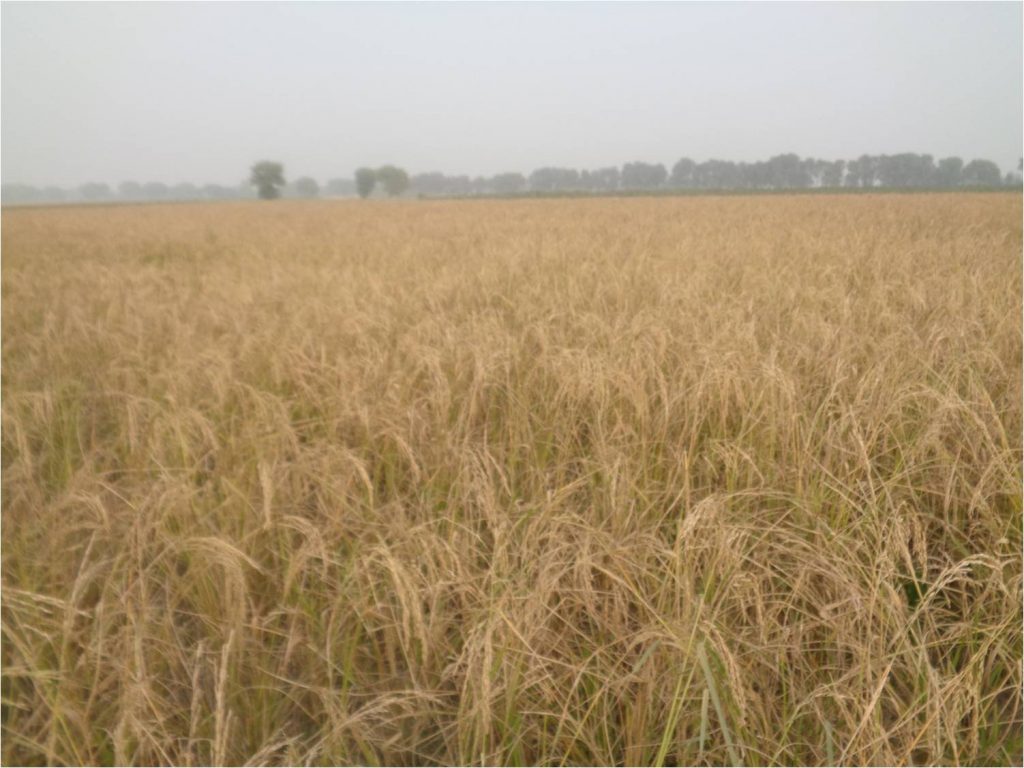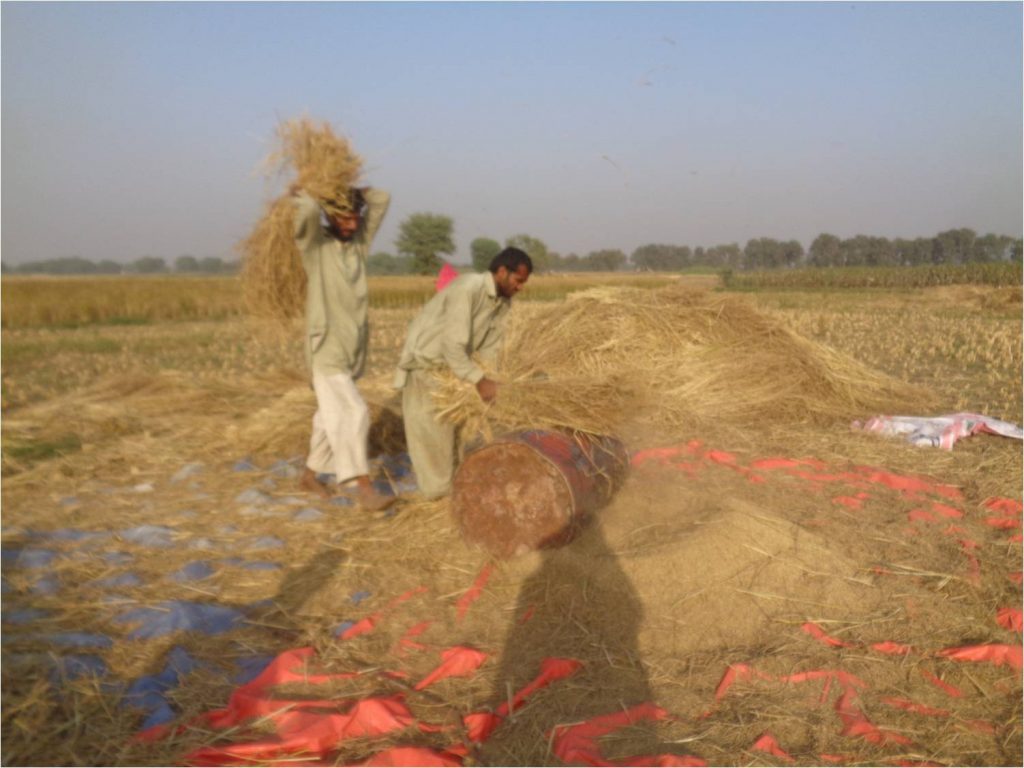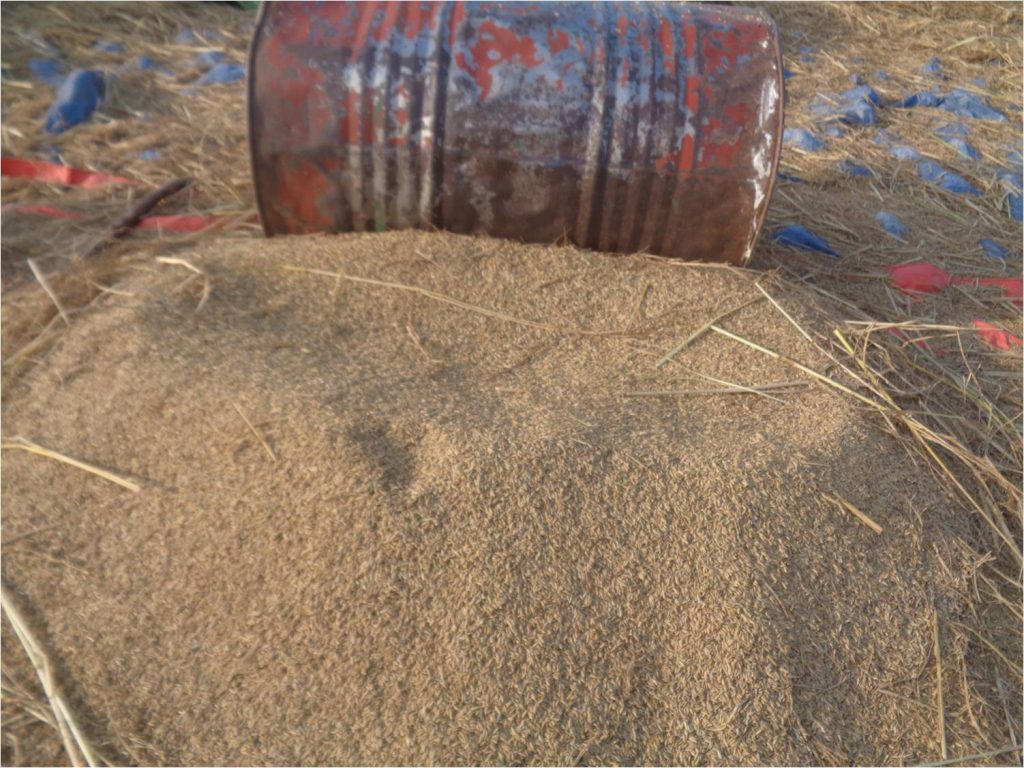By Shahzad Anwar
ISLAMABAD: Transgenic seeds are increasingly being marketed in Pakistan without any assessment of their impact on environment, human health and animals required under the United Nations Convention on Biodiversity as regulations remain weak and infrastructure does not exist in the country.
Most of the genetically modified (GM) seed varieties are available in the domestic market beyond the knowledge of relevant government departments and in connivance with some scientists, bureaucrats, politicians, big farmers and seed suppliers.
“GM seeds could be used as a biological weapon against Pakistan’s strategic cash crops,” a former director of Pakistan Environmental Protection Agency (Pak-EPA) told The Express Tribune.
“The introduction of uncertified GM seeds is aimed at saying goodbye to our indigenous varieties that cope well with the effects of environmental degradation and climate change,” he said.
“The local market is being flooded with uncertified transgenic seeds of cauliflower, cabbage, tomato and other vegetables mainly from India and China under the Truth and Labelling Rules 1991, which does not require declaration of the seed trail,” Dr Shahida Wizarat, Head of Economics Department, Institute of Business Management, said.
During a visit to Quetta last year, she found an NGO distributing saplings of GM apple plants among locals without their knowledge.
“At present, there is no national biosafety centre, prompting the need to build capacity of institutions and regulatory bodies for proper inspection of GM seeds,” former Pak-EPA director general Asif Shuja Khan said.
He insisted that seeds had a great link with the economy, public health and environment of any region and Pakistan was a signatory of the Cartagena Protocol, a legal document that ensured the safe handling, transport and use of living modified organisms (LMOs) resulting from modern biotechnology that may have adverse effects on biological diversity.
Unfortunately, he said, people working in regulatory bodies had connections with multinational seed companies or they had their own GM seed business.
“The government should pick neutral experts for the regulatory bodies who have no financial concern or stake in the seed business,” Khan suggested and said labelling was another important factor that was missing on imported seed varieties.
He feared that mis-declaration and unregulated flow of GM organisms (GMOs) would destroy biodiversity and could hamper Pakistan’s exports.
He recalled that Pak-EPA had started a biosafety project in 2005, which continued till 2014. After the 18th Amendment to the Constitution, the subject was devolved to provinces and since then there had been no institution to regulate the sale of GMOs at federal or provincial levels.
However, he decried that laws were hastily passed to protect the interest of multinational seed companies and cited the example of recently passed Plant Breeders’ Rights Bill 2016 in the Senate.
The National Biosafety Committee admitted in its meeting that some foreign aid agencies were providing different seed varieties in universities and research institutes in Pakistan without the committee’s approval.
“The country lacks expertise in the testing of transgenic seeds and it also does not have seed testing labs even in the seed certification department,” Dr Faheem, a professor of Peshawar University’s biotechnology department, said.
In Khyber-Pakhtunkhwa, he said, many GM seeds were being imported for corn and other varieties without any field trial.
Published in The Express Tribune, December 14th, 2016.
http://tribune.com.pk/story/1262277/uncertified-transgenic-seeds-sold-without-check/







